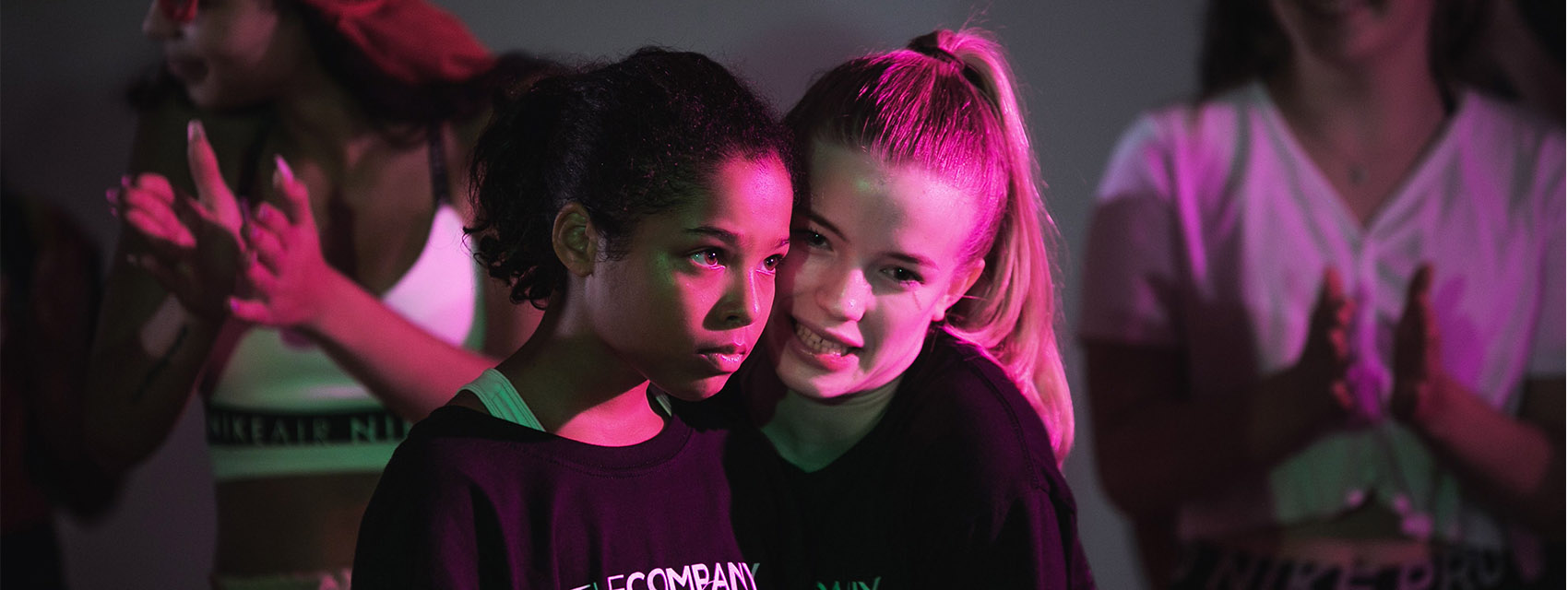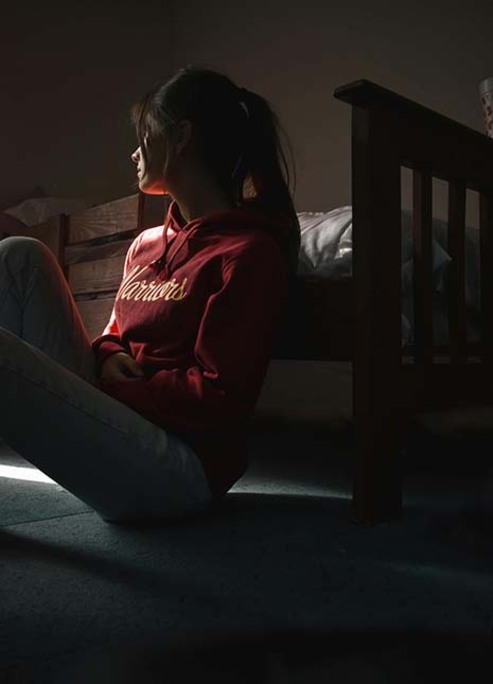Breaking Barriers: A Conversation with Jouana Samia On Girls In Sport
This International Day of the Girl, we talk all things movement and feminism in light of Nike's Girls' Coaching Guide.
By the age of 14, twice as many girls stop pursuing sports than boys. This is where well-trained, motivating coaches who are sensitive to gendered barriers in sports step in. Positive role models and coaches can help rekindle the fun in movement and inspire girls to stay active for a lifetime. On this International Day of The Girl, Nike wants to continue the conversation about uplifting girls in sports. Jouana Samia is a choreographer, dancer, director, entrepreneur, coach and woman. We speak to her about all things coaching, and sports in light of Nike’s Girls Coaching Guide which guide equips future trainers with tools to support the unique needs of girls in sport the way Jouana does. Read her story here to be inspired to join the next generation of coaches striving to uplift girls in sports.
Hi Jouana- could you tell us about how your love affair with dance first began?
I used to be an athlete before I started to dance. I was a professional runner and I used to take part in mock Olympics and all that. Because my dad was my trainer, sport was always a main topic in my family. Also, dance is kind of a cultural thing- my heritage and my roots are Lebanese. I feel like the more you travel South in the world, the more important dance will be in your culture. My mom always used to put me on a table when we went to weddings to make me perform and dance, so that was kind of my stage from a very young age. There were also volunteer dance sessions in primary schools that I took part in after school. I fell in love with it then, but honestly, I didn’t have the money to afford dance training and take professional dance classes. I went to a youth club for socially disadvantaged people where I met a few girls who became my very first dance crew. I started to train there once a week and it became my escape. I fell in love with movement- with doing sports and art at the same time.
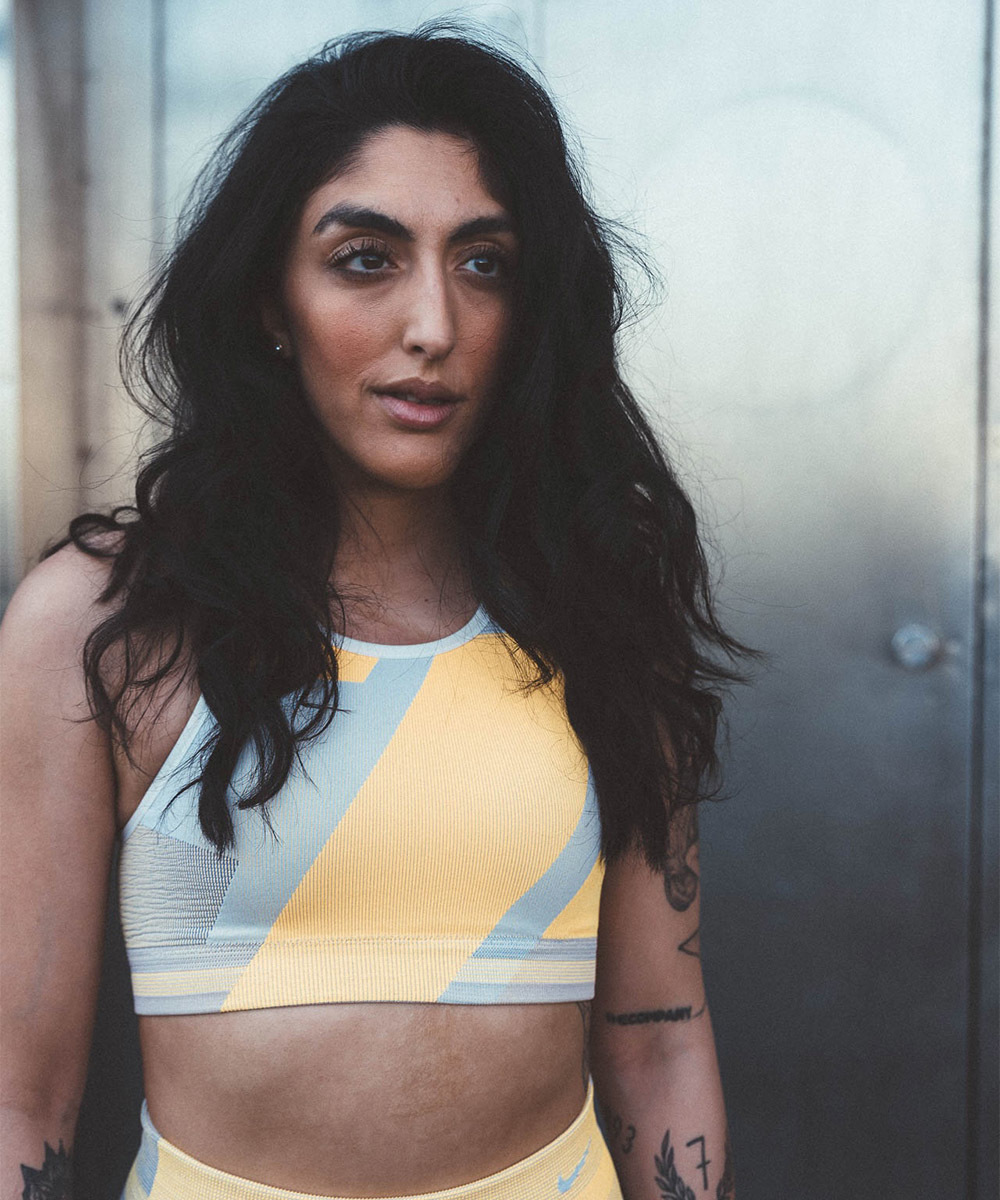 Photographer @hejfab
Photographer @hejfab
That was beautifully said. What would you say movement means to you- whether it’s in dance or athletics?
Honestly its just about being able to release stress through my body. It’s about not spending time in my head and making my body move. I really loved to run, honestly, until now. Now, the combination [of movement] with music- to inhale the music and owe the music nothing- is something else.
That’s incredible. There are so many young girls around the world who sometimes can’t pursue their passions the way you did due to lack of support. In light of this, how do you support girls in achieving their dreams – in sports, but also beyond? What role do you play as a coach in the girls’ lives?
I started to think about this 5 years ago, which is why I built my own dance company, called The Company. I wanted to have a safe space for young and aspiring dancers. We built this 5 years ago with only 10 women from different cultural backgrounds and different dance backgrounds. From the more diverse underground urban hiphop scene to more European classically trained ballet girls. I wanted to have a mixed bunch of people from different social backgrounds, not just people who can afford dance. We invited them and told them that it’s totally fine if they don’t pay; they just have to communicate with us. From there, the journey started. We’ve brought it up now to almost 60 members training 3 times a week. We give them the right amount of training, body-wise and mentally. I support them by watching, analyzing, and listening to them.
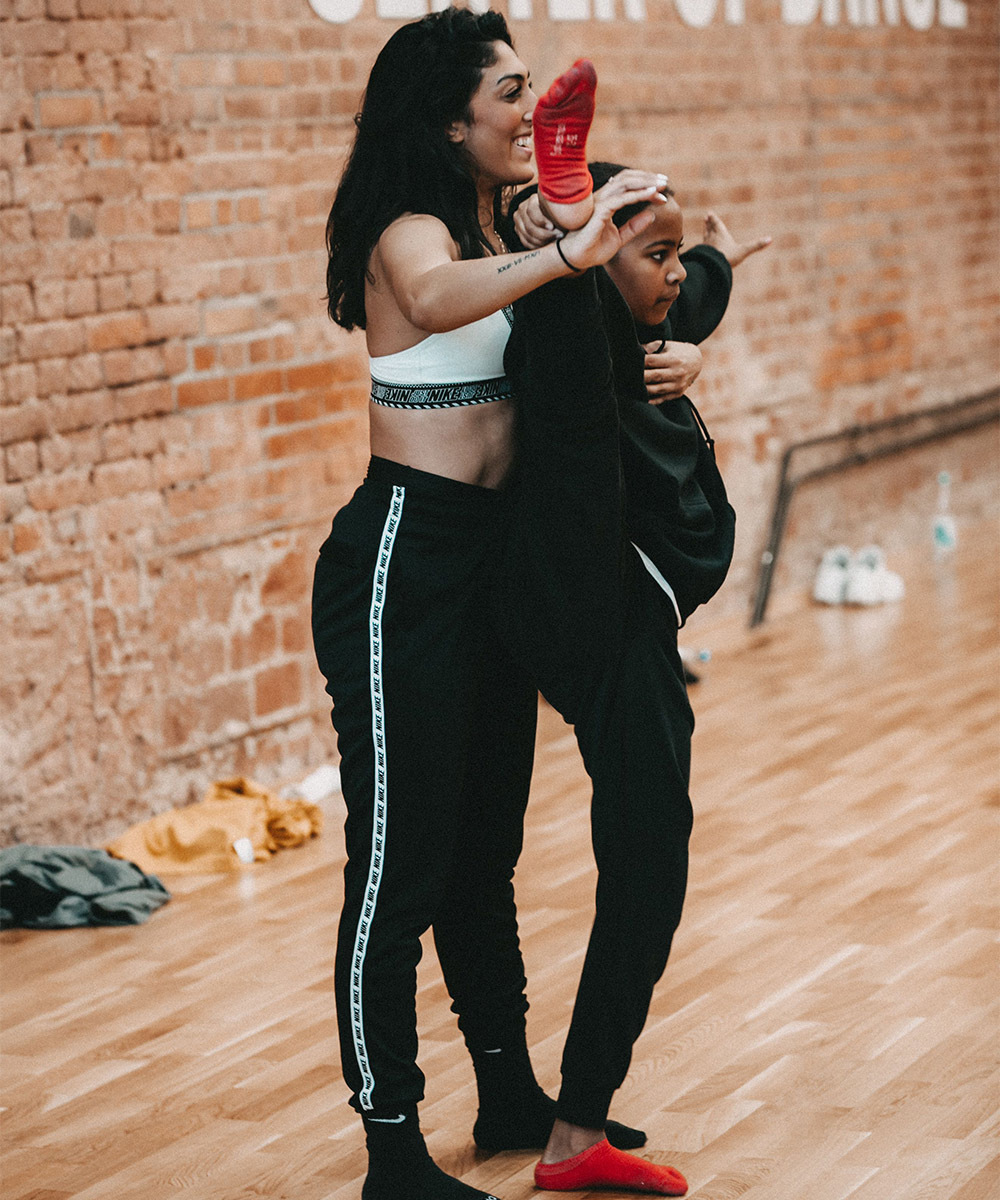 Photographer @krst_dfg
Photographer @krst_dfg
This is very important apart from giving them my knowledge or sharing my experiences in dance. For me, it’s more about being a nice human being and having a good relationship with each other than about professionalism and showing them the right dance technique. This support was lacking in my younger years. I didn’t have anybody who said “You can come to my training and you don’t have to pay; it’s alright.” I was trying to fight my way through dance. I knew my parents weren’t quite happy with me being a professional dancer because we all know that parents want us to study to be a doctor or lawyer. I didn’t choose that path. I know there are many young girls out there who have the same vision as me but are not ready to believe in it. They don’t see enough examples of “Ah, she made it.” This is what I try to give them in my training.
There’s a lot of intersectionalities in your identity and I’m sure there’s a fair amount of prejudice in the dance industry. How do you address topics like discrimination in your coaching? How do you help young girls come to terms with this?
What really helps me coach them about this specific topic is experience. I have experienced a lot of discrimination from both white as well as Lebanese culture. White people are confused about how a Lebanese person without a hijab is so open, self-confident, aware of her skills and able to present them. I always have to fight and clarify that I don’t fit some kind of conservative stereotype. On the other side, the Lebanese community always points fingers at me saying “You’re not a good woman because you’re not wearing enough clothes.” When you express yourself through movement, it can sometimes be sexy. So, this is a fight of identity that you will always face in this kind of job. I experienced all this without having anyone to communicate with because I unfortunately didn’t know any Lebanese dancers in Germany. I really tried to solve my own little puzzle, so I have a deep understanding. For example, I have a few dancers in my company from Middle Eastern backgrounds. I know the difficulties they have to face, like why their fathers aren’t happy with them dancing. That’s why I get in touch with the families to make them feel more comfortable; they’ll know that there’s a Lebanese girl taking care of them. The trust you earn is incredibly important and makes you able to achieve what you have in mind for the girls. I think the girls really feel the same safety as I do.
It sounds like you provide an incredibly personal touch to your coaching. In your opinion, how are the needs of boys and girls different when it comes to coaching?
I think we should prepare trainees for the expectations of the dance industry. I feel like female dancers are always pressure by the stereotype of “She’s sexy. She has the perfect dance body. She has to be confident and fierce”. It isn’t actually like that. We all love to dance hiphop and wear comfy clothes. Of course I love to move in sexily interpreted ways, but I also love to be boyish. I feel like the stereotypes we have in the dance world should be broken as soon as possible because they cause girls to stop focusing on dance training. They obsess over themselves in the dance studio mirrors, putting lipstick on and double-checking their looks. They are living in this Instagram bubble that is really toxic. I can say that they are really unhappy and super self-critical. This could be made better if we coaches know what to say to prepare them for such of experiences. Of course, boys always have to deal with expectations like looking muscular. They have specific pressures that we maybe don’t face. But, I feel like the difficulties we have as women in dance are totally different. It’s so hard to please everyone. Agencies that book you have very old-fashioned expectations. They are talking about diversity right now because it’s trending, but I do not see a diversity in body shapes. If you don’t look a certain way, you’re not considered a professional dancer. This is bullshit to me because you can have a beautiful plus-sized body and be a professional dancer. The mindset is causing a lot of sickness. I sometimes catch myself not eating that cookie because I have a job in 2 days and want my body to look perfect. This is not healthy. I feel like this pressure is more for women dancers than men. And this is only one of hundreds of examples.
That’s such a difficult thing to deal with- on top of your dance pressures, you have to tackle body-image issues that affect your personal life. What kind of support do you wish you had received in your coaching so that your gender wouldn’t hold you back?
I think the most lacking thing in our community and between cultures is exchange. We are not talking to each other and not exchanging experiences- dance-related or cultural. Maybe it’s because we don’t have a lobby only for coaches to improve and exchange their skills. I don’t know if it’s an ego thing, but I feel like everybody is keeping their ideas of coaching to themselves and are unwilling to share them. There are so many beautiful ways of coaching young people and to give them the right information to work on themselves, but I feel like no one is thinking of making it bigger and more beautiful by making space for different perspectives.
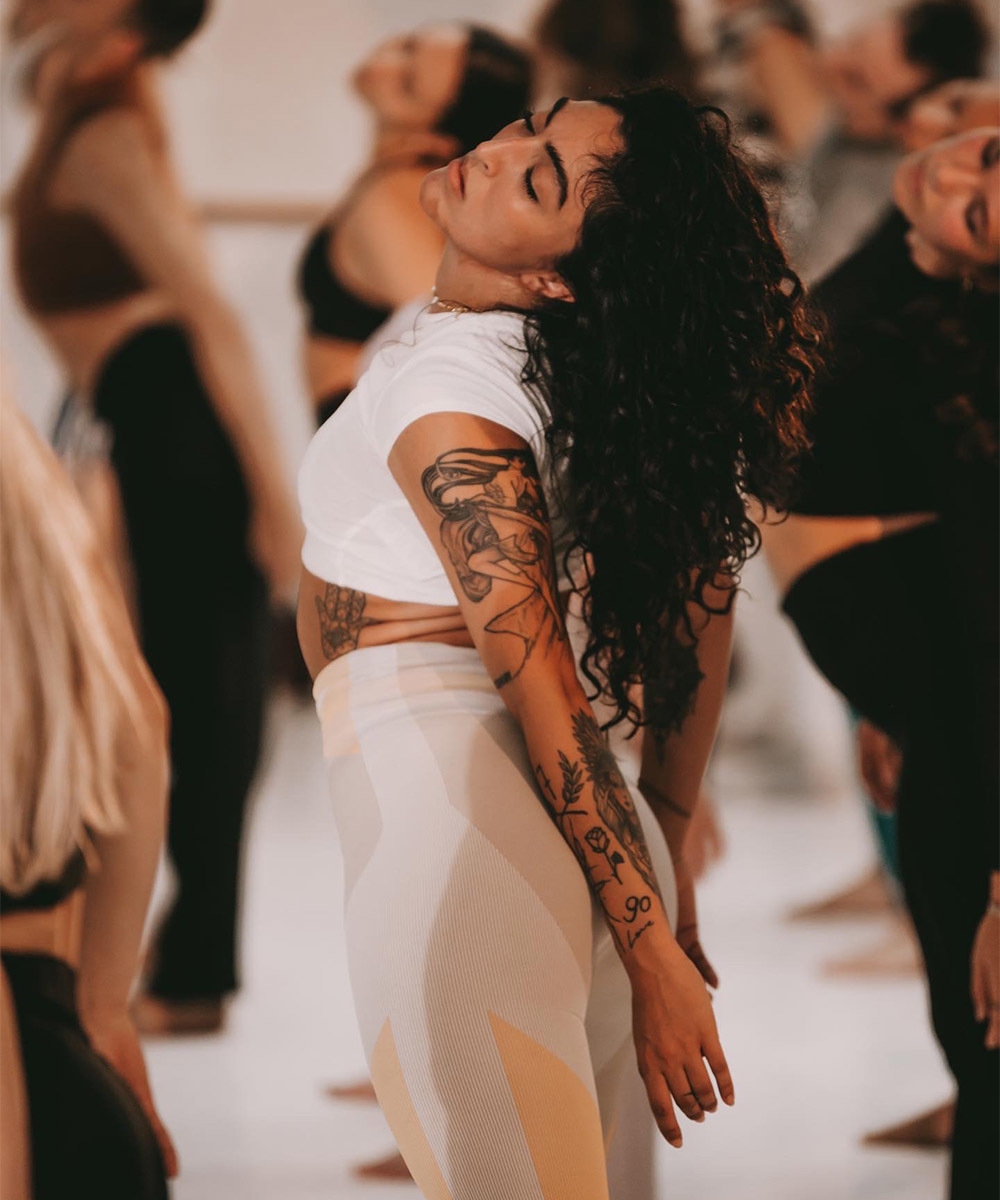 Photographer @krst_dfg
Photographer @krst_dfg
From all of your experiences, what is one thing you would like girls to learn from you?
It sounds so cheesy, but you really can do whatever you want if you want to do it. It’s as simple as the Nike slogan! Just do it. Just write your idea down and break it into different steps. It’ll then become a plan that you can work on and make a reality. It’s so simple, but I feel like young girls lack confidence. They are not convinced enough by their own ideas and vision. This is all about coaches like me taking them by the hand and giving them the tools to work on their vision. For example, a couple of years ago I was on tour with a German rapper. I got off stage and four girls approached me and said, “Are you Lebanese?” When I replied saying yes, one of them started to cry and said, “I never expected a Lebanese girl to come so far with dance. I’m so inspired.” This means so much because she was also from a Middle Eastern background. When I got back home, the girl’s words sunk in and it really moved me how people put themselves in boxes and aren’t able to escape them. Boxes by school, family and friends really influence your ability to work on your own vision. I know all girls are full of dreams, but their understanding of how to work on them is still too small.
Thank you for sharing that. Representation really can have such an impact. Lastly, what do you get out of coaching? Why do you do it?
I heal. I really do. This gets really personal and emotional, but sometimes when I coach the girls in my company, it feels like I’m coaching my old self and filling the space of the person I was always looking for. This helps me heal and gain more confidence and safety. It’s really a wonderful, unexplainable feeling.
Dance is such an emotional sport. It’s not about being the best- it’s feeling before anything else. People sometimes choose dance to escape the visit of a therapist. Understanding the emotions in dance takes your artistry and sport to another level and makes it very special. This is what I try my best to do.
Finally, do you have any closing comments for us?
We have a slogan for everything we do- “Moving to move.” It’s so simple because it’s all about moving to move you, your mind and everyone around you. This one sentence encapsulates everything I want to say.
Follow Jouana on Instagram here.



